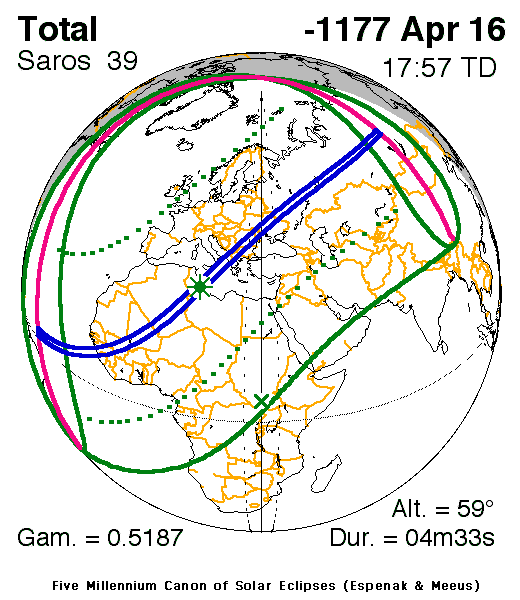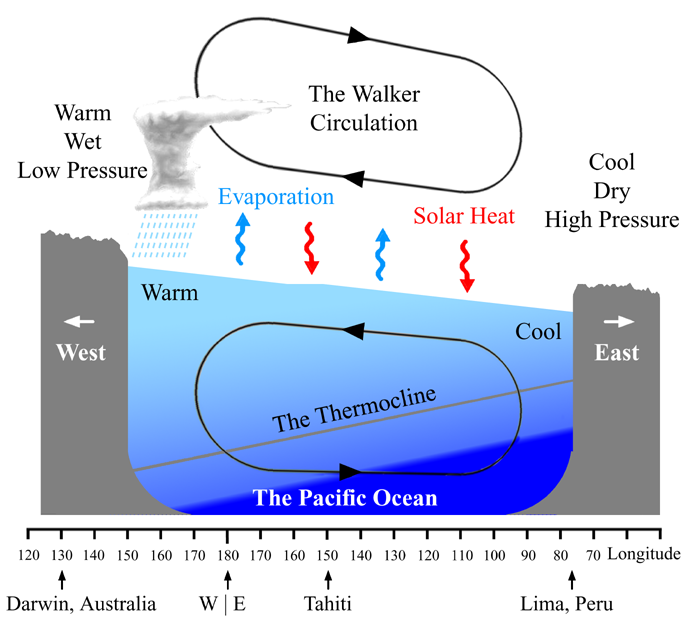http://www.science20.com/news_releases/april_16_1178_bc_homers_odyssey_eclipse_mystery_solution_may_pinpoint_the_fall_of_troy wrote:
April 16, 1178 BC - Homer's Odyssey Eclipse Mystery Solution May Pinpoint The Fall Of Troy
By News Staff | June 23rd 2008 12:00 PM
<<Homer's Odyssey, be it history or fiction, had one potentially true part that has fascinated readers throughout the ages - namely whether Odysseus returned home to experience a total solar eclipse.
Total eclipses, when the moon briefly but completely blocks the sun, happen pretty rarely. In fact, they're so rare that if what Homer describes is truly an eclipse, it could potentially help historians date the fall of Troy, which was purported to occur around the time of the events described in the Iliad and the Odyssey.
After arguing about the point for hundreds of years, historians, astronomers and classicists finally agreed that there was no corroborating evidence and tabled the discussion. Now, Marcelo O. Magnasco, head of the Laboratory of Mathematical Physics at Rockefeller, and Constantino Baikouzis of the Proyecto Observatorio at the Observatorio Astronómico in La Plata, Argentina, believe they have found some overlooked passages that, taken together, may shed new light on the timing of an epic journey.
The researchers combed through the Odyssey to find specific astronomical references that could be precisely identified as occurring on specific days throughout Odysseus's journey. Then, they aligned each of those dates with the date of Odysseus's return, the same day he murders the suitors who had taken advantage of his long absence to court his wife.
Magnasco and Baikouzis identified four celestial events. The day of the slaughter is, as Homer writes more than once, also a new moon (something that's also a prerequisite for a total eclipse). Six days before the slaughter, Venus is visible and high in the sky. Twenty-nine days before, two constellations -- the Pleiades and Boötes -- are simultaneously visible at sunset.
And 33 days before, Homer may be suggesting that Mercury is high at dawn and near the western end of its trajectory. (Homer actually writes that Hermes -- known to the Romans as Mercury -- traveled far west only to deliver a message and fly all the way back east again; Magnasco and Baikouzis interpret this as a reference to the planet.)
Astronomically, these four phenomena recur at different intervals of time, so together they never recur in exactly the same pattern. Therefore Baikouzis and Magnasco looked to see whether there was any date within 100 years of the fall of Troy that would fit the pattern of the astronomical timeline.
There was only one: April 16, 1178 BCE, the same day that astronomers had calculated the occurrence of a total solar eclipse. "Not only is this corroborative evidence that this date might be something important," Magnasco says, "but if we take it as a given that the death of the suitors happened on this particular eclipse date, then everything else described in The Odyssey happens exactly as is described."
Magnasco acknowledges that their findings rely on a large assumption: Although the association of planets with gods was a Babylonian invention that dates back to around 1000 BCE, there's no evidence that those ideas had reached Greece by the time Homer was writing, several hundred years later. "This is a risky step in our analysis," he says. "One may say that our interpretation of the phenomena is stretching it, but when you go back to the text you have to wonder."
Ultimately, whether they're right or wrong, the researchers are interested in reopening the debate. "Even though there are historical arguments that say this is a ridiculous thing to think about, if we can get a few people to read The Odyssey differently, to look at it and ponder whether there was an actual date inscribed in it, we will be happy," Magnasco says.>>
 Dark Sun over Ternate
Dark Sun over Ternate

